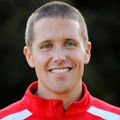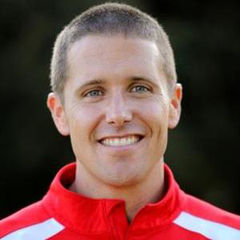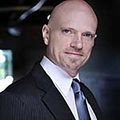Being a personal trainer is a rewarding career, but it can also be quite challenging. Long days, early mornings and working on the weekends are the norm. That’s on top of the marketing, customer service and other business-related tasks you need to do to stay afloat in this competitive industry.
Given the inherent challenges of this field, it is even more important that you avoid the frustration, egomania and self-defeating beliefs that often haunt the careers of some health and fitness professionals. These frustrations often lead to venting sessions in the break room or, increasingly, on social media. Attitudes, beliefs and other mantras are quickly communicated to the masses. These soundbites, images and other media—for better or worse—help create a personal and global brand for the fitness industry in the minds of the general public.
Furthermore, these shared notions are a reflection of a health and fitness professional’s personal approach to their work and their clients.
Throughout nearly 20 years in the fitness industry, I have worked with many talented and committed professionals. I have also worked with and observed personal trainers whose continuous frustration and fragile ego have ended their careers prematurely.
During this time, I’ve discovered that successful and unsuccessful fitness professionals have opposing paradigms when it comes to how they form and share their beliefs with regards to working with clients, operating a business and educating the public. These paradigms can now quickly and easily be observed during face-to-face conversations, as well as social media manifestos.
After seeing hundreds of posts each day and speaking in-person with personal trainers around the world, three commonly shared “bad” beliefs have surfaced, which can damage a personal brand, increase the number of challenges a health and fitness professional faces, and, ultimately, allow frustration to consume a promising career of inspiring health.
Bad Belief #1: “My clients are lazy.”
How many of your clients do the at-home program you take the time to write for them?, Are they willing to push themselves to the brink during training? With a shake of the head and a frustrated “No!”, it’s clear that our clients don’t share our zeal for exercise.
But why would they? As a personal trainer, we are asking clients to spend their three most precious resources—time, energy and money—to do something they have never particularly enjoyed or understood. If they were like-minded zealots, they would be colleagues, not clients.
Realize that your clients’ professed goals are not always manifested from a deep fire within. Our clients are often merely echoing what their doctor, spouse, friends or tabloid magazines have told them. Seeking the services of a personal trainer is a step in the right direction, but they have no interest in becoming consumed with the idea of single-digit body fat or triple-digit PRs.
Instead, recognize that a client who admits he or she needs help, who spends money, drives out of the way, and takes the time to invest energy in something he or she doesn’t particularly like to do on a regular basis is the opposite of lazy.
Here’s an analogy: Business acumen is not something that many personal trainers necessarily understand or enjoy. In fact, many are uncomfortable with the business side of being a personal trainer, particularly creating systems or doing marketing. And, while nearly every trainer would like to grow his or her business and income 10-fold, many don’t take the time to learn how to market, develop business systems and perform other business-related tasks that would help ensure their success. So why don’t they?
I frequently provide business consulting for fitness professionals who don’t take the time to do the marketing, reading, writing, etc. assignments I provide. Does that make them lazy? Or, are they just overwhelmed by something that doesn't come naturally to them?
Increase your compassion and decrease your frustration by putting yourself in your client’s shoes.
Bad Belief #2: “(Insert another professional’s name) stole their exercises from me!”
Let’s cut to the chase. No one has invented an exercise since 5000 BC. The ways in which the body can move have been experienced millions of times, called different things, and evolved and devolved since warriors and monks discovered that non-lethal, voluntary movement was fun thousands of years ago.
As health and fitness professionals, we all take pride in what we create. We love applying our education and creativity to engineer solutions to physical problems. It’s important to note, however, that everything we know we have essentially “stole” from someone else.
Furthermore, would you want to become a student of someone who hid his or her ideas from the world? I have discovered that there’s an uncanny correlation between what a health and fitness professional shares with the rest of the industry and how successful he or she becomes.
Your success does not hinge on unique exercises that no one else is privy to. It hinges on your ability to communicate, connect and inspire. It’s a product of giving more than taking. Personal trainers who do these things better than anyone else can change their clients’ lives while empowering the entire industry.
While healthy competition is a driver for a business, nothing accelerates results in every aspect of the fitness industry more than collaboration.
Bad Belief #3: “I’ll just hire someone to do the marketing stuff.”
This third “bad belief” has to do with the viability of a personal-training business, which is ultimately the most important factor in being able to help a client long-term (out of business=can’t help people).
I have heard health and fitness pros utter this “kiss of death” phrase multiple times with respect to promoting their studios, products and other services. Realize that informing and, most importantly, engaging the public with your products and services is roughly 70-80% of your business success. The best program in the world means nothing if no one knows about or participates in it.
That being said, it sounds a bit absurd to say, “I’m going to start a business or create a product, and only do 20% of the work.” Good marketing people know their value, so if you’re a small operation planning on hiring someone to do 80% of your work, be ready to relinquish 80% of your profits.
It is a best practice to “do what you do best and hire the rest.” Large, established, profitable institutions have the systems and budget in place to do this. However, no one on earth understands your brand and vision better than you do. Even relinquishing a large chunk of your profits to a marketing person still requires significant insight, input and evaluation. This takes a significant amount of time every day.
If you’re a health and fitness professional with intentions for growth, marketing cannot be ignored or completely outsourced. Take a minimum of one to two hours each day to learn how to do this effectively. Look to resources like www.Fiver.com to get specialized graphics or other work performed for minimal cost. Social media offers a ton of free and low-cost opportunities to share your business and brand with the public, so be wary of organizations charging large fees for promotion.
Once you have established a marketing budget and some basic systems that you know work, consider a specific area in which an expert could help drive growth. Create a list of specific needs and find a contractor who can help you with those needs. Unless you want to give up at least 50% of your profits as a small operation, don’t go to someone and say, “I want you to do all my marketing stuff.”
Own your business and brand’s relationship with the public. Spend time to learn and apply ways to get people engaged with your offerings to help improve their lives.
Avoid sharing these “bad beliefs” on social media, conversations with other professionals, and in your own career paradigm. Imagine how many more people you could reach if you showed compassion to your clients, shared your methods with the industry, and learned how to engage your community and beyond with your services. These are the traits of the successful health and fitness professionals that are considered mentors and industry leaders.
The world of health and wellness needs more leaders, so be proactive with your thoughts and actions. The world needs your art!
Our certifications are built on the foundation of the ACE Integrated Fitness Training® Model, created to help you deliver the types of individualized programs people need to adopt long-term, healthy behaviors. Find out more about our Personal Trainer Certification.




 by
by 









 by
by